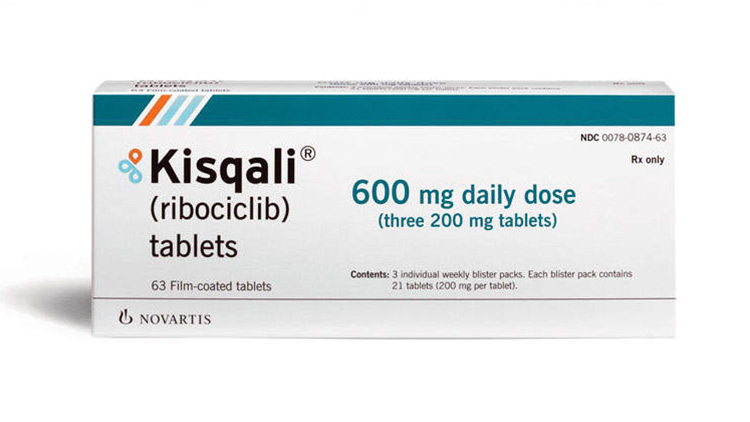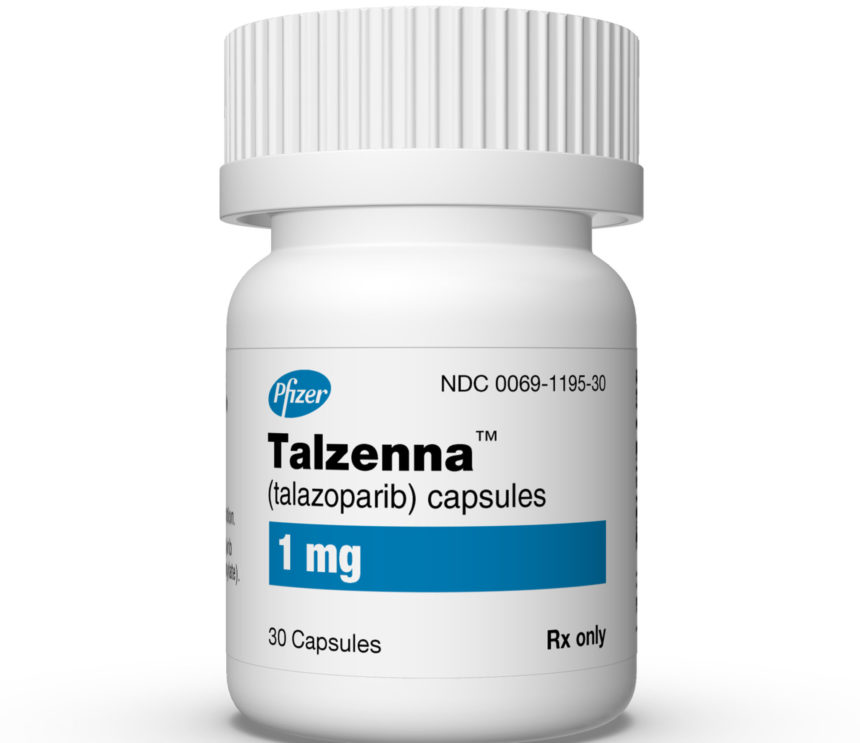Kisqali (ribociclib) vs Talzenna (talazoparib)
Kisqali (ribociclib) vs Talzenna (talazoparib)
Kisqali (ribociclib) is a CDK4/6 inhibitor used in combination with hormone therapy for the treatment of certain types of hormone receptor-positive, HER2-negative advanced or metastatic breast cancer. Talzenna (talazoparib) is a PARP inhibitor indicated for the treatment of patients with deleterious or suspected deleterious germline BRCA-mutated, HER2-negative locally advanced or metastatic breast cancer. The choice between Kisqali and Talzenna would depend on the specific molecular characteristics of the breast cancer, the presence of a BRCA mutation, and the patient's overall treatment plan as determined by their healthcare provider.
Difference between Kisqali and Talzenna
| Metric | Kisqali (ribociclib) | Talzenna (talazoparib) |
|---|---|---|
| Generic name | Ribociclib | Talazoparib |
| Indications | Advanced or metastatic breast cancer | Germline BRCA-mutated, HER2-negative locally advanced or metastatic breast cancer |
| Mechanism of action | CDK4/6 inhibitor | Poly (ADP-ribose) polymerase (PARP) inhibitor |
| Brand names | Kisqali | Talzenna |
| Administrative route | Oral | Oral |
| Side effects | Neutropenia, nausea, infections, fatigue, diarrhea | Anemia, nausea, fatigue, vomiting, headache, loss of appetite |
| Contraindications | Hypersensitivity to ribociclib or any of its components | Hypersensitivity to talazoparib or any of its components |
| Drug class | Antineoplastic agent | Antineoplastic agent |
| Manufacturer | Novartis Pharmaceuticals Corporation | Pfizer Inc. |
Efficacy
Efficacy of Kisqali (Ribociclib) in Breast Cancer
Kisqali (ribociclib) is a targeted therapy known as a cyclin-dependent kinase 4/6 (CDK4/6) inhibitor, which is used in the treatment of certain types of breast cancer. Specifically, it is indicated for hormone receptor-positive (HR+), human epidermal growth factor receptor 2-negative (HER2-) advanced or metastatic breast cancer. Clinical trials have demonstrated that when used in combination with an aromatase inhibitor or fulvestrant, ribociclib significantly improves progression-free survival (PFS) compared to the endocrine therapy alone. This improvement in PFS indicates that ribociclib is effective in delaying the progression of HR+/HER2- breast cancer, particularly in postmenopausal women.
Efficacy of Talzenna (Talazoparib) in Breast Cancer
Talzenna (talazoparib) is a poly (ADP-ribose) polymerase (PARP) inhibitor used for the treatment of adults with deleterious or suspected deleterious germline BRCA-mutated, HER2-negative locally advanced or metastatic breast cancer. Patients selected for treatment with talazoparib should have an identified BRCA mutation. The efficacy of talazoparib was established in a pivotal phase 3 trial, which showed a significant improvement in PFS for patients taking talazoparib compared to those who received standard chemotherapy. This suggests that talazoparib is effective in slowing down the progression of BRCA-mutated breast cancer and may offer a targeted treatment option for this specific patient population.
Comparative Efficacy in Breast Cancer Treatment
While both Kisqali and Talzenna are used in the treatment of breast cancer, they target different pathways and are used in distinct patient populations. Kisqali's efficacy is most notable in combination with other hormone therapies for HR+/HER2- breast cancer, whereas Talzenna's efficacy is specific to patients with a BRCA mutation and HER2-negative breast cancer. The choice of treatment depends on the molecular characteristics of the breast cancer and the patient's overall health status. Both medications have shown to be effective in their respective indications and represent important options in the personalized treatment of breast cancer.
Considerations and Ongoing Research
Continued research is necessary to further understand the long-term efficacy and potential resistance mechanisms to both Kisqali and Talzenna. Additionally, ongoing clinical trials are exploring the use of these drugs in various combinations and in earlier stages of breast cancer. As with all cancer therapies, the efficacy of Kisqali and Talzenna must be balanced with potential side effects, and treatment decisions should be made in close consultation with a healthcare professional. The evolving landscape of breast cancer treatment underscores the importance of molecular profiling and personalized medicine in achieving the best possible outcomes for patients.
Regulatory Agency Approvals
Kisqali
-
European Medical Agency (EMA), European Union

-
Food and Drug Administration (FDA), USA

-
Health Canada

-
Therapeutic Goods Administration (TGA), Australia

-
Medsafe (NZ)

Talzenna
-
European Medical Agency (EMA), European Union

-
Food and Drug Administration (FDA), USA

-
Therapeutic Goods Administration (TGA), Australia

Access Kisqali or Talzenna today
If Kisqali or Talzenna are not approved or available in your country (e.g. due to supply issues), you can access them via Everyone.org.
How it works

Make an enquiry
Choose the medicine you want to buy, answer a couple of questions, and upload your prescription to speed things up. We’ll get back to you within 24 hours.


Make an enquiry
Choose the medicine you want to buy, answer a couple of questions, and upload your prescription to speed things up. We’ll get back to you within 24 hours.


Breeze through the paperwork
We'll guide you through the required documents for importing unapproved medicine, ensuring you have all the necessary information.


Get a personalized quote
We’ll prepare a quote for you, including medicine costs and any shipping, administrative, or import fees that may apply.


Receive your medicine
Accept the quote and we’ll handle the rest - sourcing and safely delivering your medicine.

Some text on this page has been automatically generated. Speak to your physician before you start a new treatment or medication.
Let's talk
If you have any questions, call us or send us a message through WhatsApp or email:
Contact us




